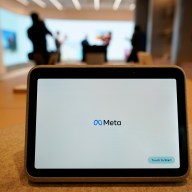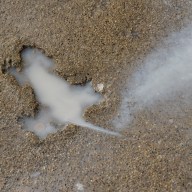 Legendary-to-artists manager Shep Gordon gets profiled in the documentary “Supermensch.”
Legendary-to-artists manager Shep Gordon gets profiled in the documentary “Supermensch.”
Credit: RADiUS-TWC
The subject of “Supermensch: The Legend of Shep Gordon” isn’t a household name; he doesn’t even have a Wikipedia page. But as the documentary, directed by longtime friend and associate Mike Myers, shows, he’s one of the Zeligs of the entertainment business. He knows everybody and everybody knows him. He was instrumental in starting the careers of Alice Cooper, Teddy Pendergrass, even Anne Murray, as well as producing movies by Alan Rudolph (“Choose Me”), Jon Carpenter (“They Live”) and Wes Craven (“The People Under the Stairs”). He even helped launch the idea of celebrity chefs, dated Sharon Stone in her “Basic Instinct” days and plenty, plenty more.
He now spends most of his time in Maui, where he’s lived for years. But he remains somewhat active — and, of course, he’s riding around the States, talking about the movie about him. This last part doesn’t thrill him but, in true supermensch style, he’ll do it anyway.
Do you ever get sick of relentlessly nice Maui weather? Do you wish for a rainy day?
No. That’s such a New York question. I get so many New Yorkers who ask that. Island life, you have to like it, because it’s very different from city life. The outside and the inside are the same temperature. You can live in a bathing suit. I was raised in Oceanside, next to Long Beach, so I had seen that kind of life as a kid. I’d always wanted it, even when I didn’t live it.
Was it difficult, when you settled there, to get rid of the anxiety that comes from living in cities and on tours?
I’ve been pretty lucky: I’ve never had an anxiety button. I worked really, really hard, but I never considered myself a real workaholic. If you’re an overachiever, there’s a lot of external things that become really important, like sporting events and theater. I’m not knocking that, but island life is more about early night and picking stuff out of the garden and hoping there’s no tsunamis.
What is it like being on the other side of celebrity, answering people’s questions?
I find that to be the easiest part about it. The questions have been so sincere. People asked me what’s my favorite color, those kinds of things. The thing that’s hardest is — I’ve spent most of my life clearing the path for artists to get by. I don’t have that kind of fame whatsoever, but in cities that this plays I’ll get an occasional person who comes up to me. This girl came up to me recently, who was very sweet and had seen a screening, and she wanted to talk to me about some serious issues. And I had to get to this meeting. So I had to make a choice between keeping this person with whom I had a meeting waiting or being a bit of a jerk to someone who really wanted to talk to me. It made me realize what artists I managed had been going through all those years. You don’t want to be a jerk to these people. But you have to be.
 Shep Gordon hangs with Alice Cooper, one of his most famous clients.
Shep Gordon hangs with Alice Cooper, one of his most famous clients.
Credit: RADiUS-TWC
Do you find it weird doing interviews?
Yeah, it’s very uncomfortable. I’m not uncomfortable at the question-and-answers after the movie, for some reason. Doing an interview, though, is weird for me. I’m happy to do them and I know it’s what needs to be done, particularly for Mike, who’s spent 18 months of his life making this movie and I spend 10 hours doing interviews. But it’s not something I would chose to do. Because all you do is talk about yourself. That may be interesting to other people, but it’s not interesting to me. I know the ending.
Did Myers have to do much coaxing to get you to do this?
I said no for years and years and years. It was only when I was in the hospital that I said yes. I was probably heavily medicated.
What things would you change about the film?
I felt that I was giving to much credit in the early days of Alice [Cooper], which is why I’ve been crediting Joe Greenberg, who was my partner. I come across like I did everything. I truly had people who helped me everywhere, and he was the most significant. We managed Alice together, we met Janis [Joplin] together, we met Jimi together. But Mike only had 90 minutes and it’s his story, much more than it’s my story. It’s his story of my life — the parts he knows.
One thing the film doesn’t have time to go into was how you managed Pink Floyd for nine days in the Syd Barrett years.
It was very bizarre. We got them a show in Chicago at a place called The Kinetic Playground. And when they got there the place had burned down. They never got paid. The owner had torched the place. They assumed I knew it had happened, and that was it. Nine days later we were fired. We got a letter from Mason Towers — Nick Mason was the drummer. We were like, “Oh my god, he has his own building?” [Laughs]
Follow Matt Prigge on Twitter @mattprigge
















